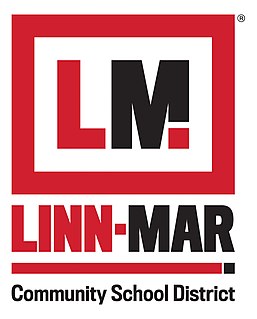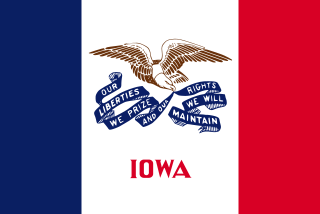A silo is a structure for storing bulk materials.

Proposition 13 was an amendment of the Constitution of California enacted during 1978, by means of the initiative process. The initiative was approved by California voters on June 6, 1978. It was upheld as constitutional by the United States Supreme Court in the case of Nordlinger v. Hahn, 505 U.S. 1 (1992). Proposition 13 is embodied in Article XIII A of the Constitution of the State of California.

The administrative divisions of New York are the various units of government that provide local services, "local" meaning "not statewide", in the State of New York. The New York State Constitution standardized the names and functions of these statewide.

Proposition 1A was a California ballot proposition on the November 2, 2004 ballot. The proposition passed with 9,411,198 (83.7%) votes in favor and 1,840,002 (16.3%) against.

Tax increment financing (TIF) is a public financing method that is used as a subsidy for redevelopment, infrastructure, and other community-improvement projects in many countries, including the United States. Similar or related value capture strategies are used around the world.
A tax holiday is a temporary reduction or elimination of a tax. It is synonymous with tax abatement, tax subsidy or tax reduction. Governments usually create tax holidays as incentives for business investment. Tax holidays have been granted by governments at national, sub-national, and local levels, and have included income, property, sales, VAT, and other taxes. Some tax holidays are extra-statutory concessions, where governing bodies grant a reduction in tax that is not necessarily authorized within the law. In developing countries, governments sometimes reduce or eliminate corporate taxes for the purpose of attracting foreign direct investment or stimulating growth in selected industries.

Sales taxes in the United States are taxes placed on the sale or lease of goods and services in the United States. Sales tax is governed at the state level and no national general sales tax exists. Forty-five states, the District of Columbia, the territories of the Puerto Rico, and Guam impose general sales taxes that apply to the sale or lease of most goods and some services, and states also may levy selective sales taxes on the sale or lease of particular goods or services. States may grant local governments the authority to impose additional general or selective sales taxes.

Linn-Mar Community School District is a school district in Linn County, Iowa that administrates seven elementary schools, two middle schools and a high school. The district includes the northern part of Marion, Iowa, an area in Cedar Rapids, part of Robins and rural areas in the county. As of 2019, more than 7700 students were enrolled in district schools.

The Dubuque Community School District (DCSD) is a school district based in Dubuque, Iowa (USA). DCSD, which operates schools in eastern Dubuque County, is the seventh largest school district in Iowa. As of the 2007-2008 school year, DCSD has 10,728 students enrolled in its schools.
A gross receipts tax or gross excise tax is a tax on the total gross revenues of a company, regardless of their source. A gross receipts tax is similar to a sales tax, but it is levied on the seller of goods or service consumers. This is compared to other taxes listed as separate line items on billings, are not directly included in the listed price of the item, and are not a factor in markup or profit on company sales. A gross receipts tax has a pyramid effect that increases the actual taxable percentage as it passes through the product or service life-cycle.
In the United States, a local option sales tax is a special-purpose tax implemented and levied at the city or county level. A local option sales tax is often used as a means of raising funds for specific local or area projects, such as improving area streets and roads, or refurbishing a community's downtown area.

The structure of the Government of South Dakota is based on that of the federal government, with three branches of government: executive, legislative, and judicial. The structure of the state government is laid out in the Constitution of South Dakota, the highest law in the state. The constitution may be amended either by a majority vote of both houses of the legislature, or by voter initiative.

The government of Vermont is a republican form of government modeled after the Government of the United States. The Constitution of Vermont is the supreme law of the state, followed by the Vermont Statutes. This is roughly analogous to the Federal United States Constitution, United States Code and Code of Federal Regulations respectively. Provision is made for the following frame of government under the Constitution of the State of Vermont: the executive branch, the legislative branch, and the judicial branch. All members of the executive and legislative branch serve two-year terms including the governor and senators. There are no term limits for any office.
The Counties Transit Improvement Board (CTIB) was a Joint Powers Board established in March 2008 which will control an estimated $100 million annually in transit funds for the Minneapolis–St. Paul metropolitan area. The board was responsible for granting the funds under its control to major transit infrastructure projects around the Twin Cities. In 2016-2017 a series of events led to the formal vote by members of the CTIB to dissolve the board effective September, 2017. Individual counties then developed county level transit taxes to replace funding streams that had been allocated by the CTIB.
Sales and use taxes in California are among the highest in the United States and are imposed by the state and local governments. From a tax terminology perspective, sales taxes are a proportional tax; though because of the fact that lower income earners may pay a greater percentage of their earnings to sales taxes than higher income earners, sales tax can also be described as a regressive tax. Local sales tax increases create geographical variations in sales tax rates which can place some local businesses at a competitive disadvantage.
The policy of ‘’’taxation in the Philippines’’’ is governed chiefly by the Constitution of the Philippines and three Republic Acts.

South Carolina government and politics covers the three different branches of government, as well as the state constitution, law enforcement agencies, federal representation, state finances, and state taxes.

Proposition 30, officially titled Temporary Taxes to Fund Education, is a California ballot measure that was decided by California voters at the statewide election on November 6, 2012. The initiative is a measure to increase taxes to prevent US$6 billion cuts to the education budget for California state schools. The measure was approved by California voters by a margin of 55 to 45 percent.











